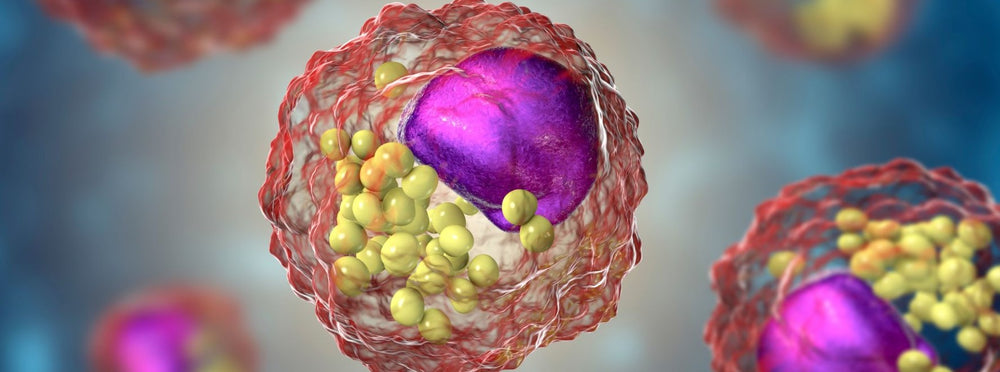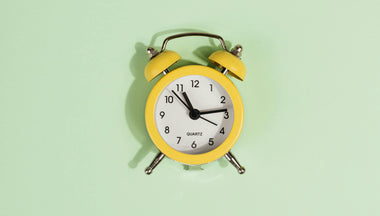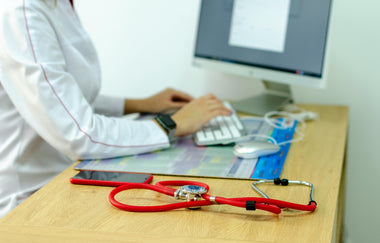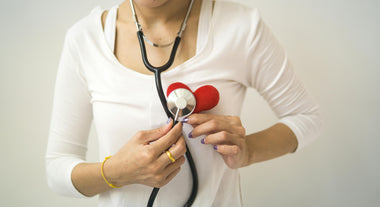What causes high LDL cholesterol?

Given the title, you might think this blog is going to be all about the lifestyle factors that cause levels of LDL (bad) cholesterol to rise, like saturated fat intake and inactivity. But what I really want to do today is tell you about the biochemical pathways inside our bodies that influence LDL levels, as this is something that is not often explained to patients.
There are multiple mechanisms that can drive LDL up, but the major ones are:
LDL production in the liver.
This process is regulated by an enzyme, HMG-CoA reductase, and its activity, though markedly influenced by lifestyle, is also driven by genetics. Which means, at some point no matter how pristine your lifestyle is you will reach a genetically driven threshold of LDL production that additional lifestyle change cannot overcome. Statins, which are all HMG-CoA reductase inhibitors, work to suppress the activity of this enzyme - causing LDL levels to fall. The good news is that if the LDL number we see on a lab test is due to genes (because you’ve done your part to eliminate all lifestyle contributors), even small doses of statins can yield dramatic LDL cholesterol reductions.
Cholesterol absorption and reabsorption in the digestive system.
Every single time we eat, the liver and gallbladder (if you have one) squish a bunch of bile into the digestive system. Bile is essential for breaking down food. It’s also very cholesterol-rich and is made from circulating LDL. Because we always need to be ready to digest food, we always need to have plentiful bile reserves. We can keep those reserves full by bringing more LDL back to the liver to make more bile for the next meal. We can also reabsorb any bile that didn’t get used up in the digestive process. When we interfere with bile reabsorption, more LDL will need to be pulled from the bloodstream to make bile for the next meal -- and LDL levels will drop. This is where fiber and plant sterols come into play. Fiber traps bile, increasing elimination through the digestive system and plant sterols compete with intestinal absorption of bile, also leading to higher bile loss. Some people are very efficient bile reabsorbers and even a small disruption here can yield marked falls in LDL levels.
LDL receptor activity.
LDL is removed from the bloodstream by attaching to receptors on cells. The more LDL receptors there are, the more efficient the LDL removal process, and the less LDL is left floating around in your bloodstream. LDL receptor levels are heavily influenced by an enzyme called PCSK9. When PCSK9 levels are high, LDL receptor levels are low, leading to high circulating levels of LDL cholesterol. The opposite is also true: People with a genetic deficiency of PCSK9 have very low circulating LDL levels over their entire lifetimes and typically don’t develop cardiovascular disease. Newer injectable drugs like Repatha, Praluent and Leqvio all lower PCSK9 levels leading to higher LDL receptor numbers, often yielding dramatic LDL reductions.
Insulin levels.
Insulin is a storage hormone released in response to elevated blood sugar levels and is critical to getting that sugar inside cells. But as a storage hormone, it puts our body generally into storage mode. What’s the storage form of cholesterol? LDL. LDL levels go up when insulin levels are high. This is why type 2 diabetics (who have generally high circulating insulin levels) tend to have higher LDL levels as well. People who eat simple/highly processed carbohydrates will also experience high insulin levels, and as a result, high LDL. That does NOT mean you should eat a low carbohydrate diet! Complex carbs from whole foods (the foods known to support heart health and healthy longevity) take longer to digest, leading to lower blood sugar levels and lower insulin levels, minimizing the insulin-LDL effect.
Sex hormone levels.
Estrogen is a protective hormone in women and helps lower LDL and raise HDL (good) cholesterol. When women go through menopause and lose estrogen, most will see a deterioration in their cholesterol profile. Some might even see drastic changes. As an aside, testosterone seems to have less effect on LDL but it can lower HDL cholesterol. Men on testosterone replacement can see significant reductions in HDL levels, which could increase heart disease risk.
In summary, there are MULTIPLE biochemical processes that influence cholesterol levels. Some of these we can impact and some we can’t. This means in some individuals, combinations of therapeutic approaches may be necessary to achieve LDL goals.
How To Achieve Healthy Cholesterol Levels
What we CAN control are cholesterol absorption/reabsorption in the digestive system and circulating insulin levels. And this is where Step One Foods shine! By providing concentrated levels of fiber, plant sterols and complex carbohydrates we help you leverage your natural biochemistry!
But not everyone responds to a food-based approach because other mechanisms may be at play – and these are largely genetically driven or age related.
That doesn’t mean a partial response is not meaningful! If you’ve helped reduce your LDL through diet, you make it much easier for drugs to get you to goal --- at a lower dose! Which is HUGE – because medication side effects are more likely with higher drug doses. Plus, a better diet has effects far beyond a cholesterol profile. I suspect most of us don’t want to just lower cholesterol, we also want to avoid getting cancer and developing dementia. No matter what the LDL result, eating better is helping you achieve those goals too.
Conclusion
Finally, not everyone with high LDL needs to be on a drug (or even attain perfect LDL levels). After all, LDL is just ONE risk factor for a multifactorial disease. So if your cholesterol is not perfect - and you don’t already have heart disease (or diabetes which places people at very high risk of cardiovascular events) - checking a coronary calcium scan can help determine if, after maximizing dietary approaches, you could experience a clear health benefit from also being on a medication for the rest of your life.

Tested & Proven Results.
- Cardiologist formulated
- Supported by over 500 publications
- Clinically-proven, in a double-blind randomized trial with Mayo Clinic and The University of Manitoba
80% of participants lowered their cholesterol in just 30 days. With just two servings per day, Step One Foods offers a proven-effective way to naturally lower LDL (bad) cholesterol.
Get heart health tips and articles like this, delivered right to your email.
New articles every week.
You may also like...

The Clock You Should Be Paying Attention To (But Probably Aren’t)

The LDL Chart Fueling Confusion Online - And What It Misses

You don’t need to avoid foods with cholesterol…except for these


